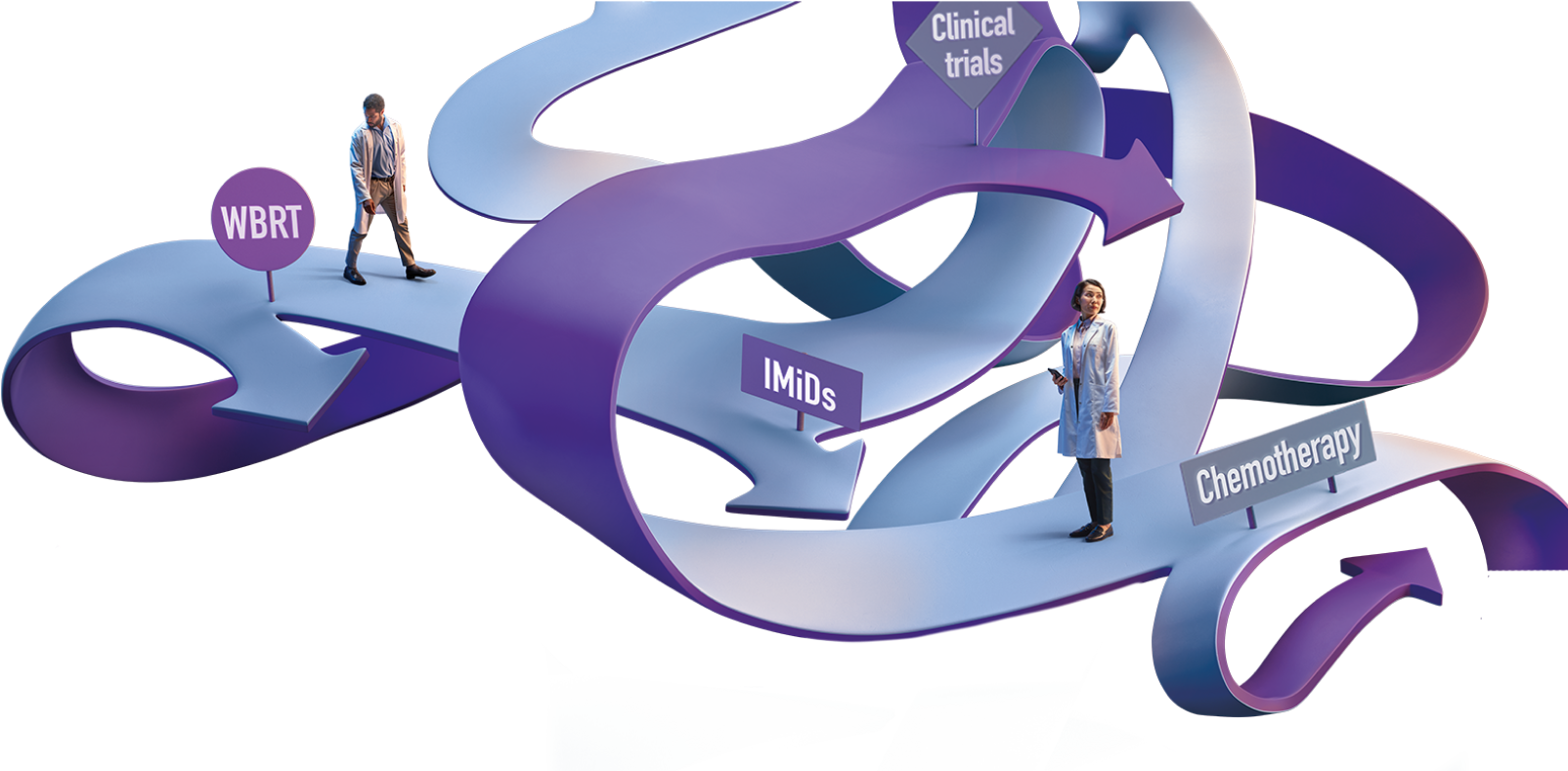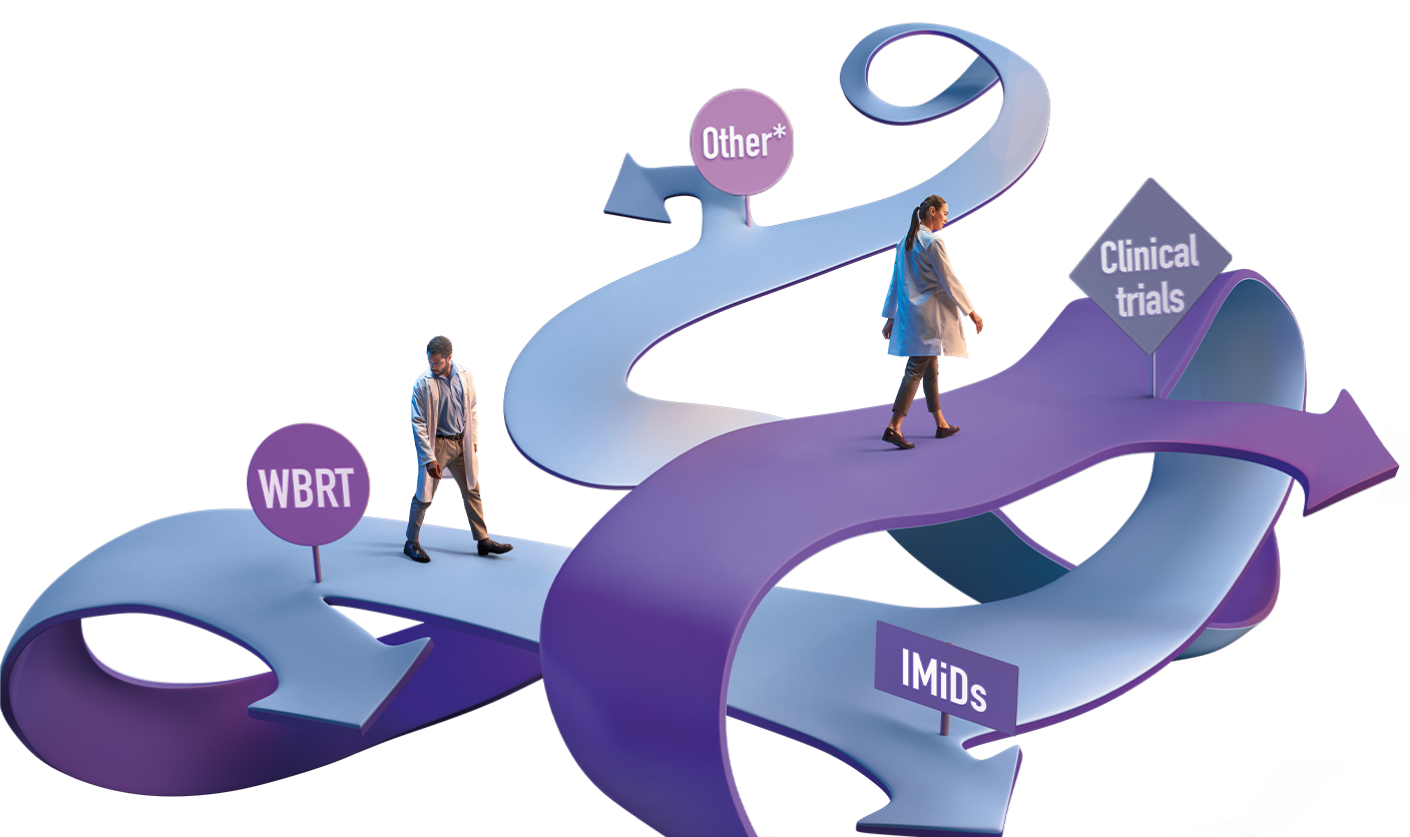
Understanding R/R PCNSL
In PCNSL, progression is likely and prognosis is poor1,2
What Is Primary Central Nervous System Lymphoma (PCNSL)?
PCNSL is a highly aggressive type of non-Hodgkin lymphoma (NHL) in which the tumor is mostly confined to the brain1,3-5
PCNSL accounts for1,3-5:
2%-3% of all
NHL diagnoses
4% of all
brain tumors
PCNSL is a predominantly diffuse large B-cell lymphoma5,6
- Located in the brain, spinal cord, leptomeninges, or eyes
- With no evidence of systemic involvement
In the US7
~0.45 cases
100,000 people are diagnosed
every year
~1,900 people were diagnosed
with PCNSL in 2023
The median age at diagnosis is 65 years, and these patients require additional consideration due to8-11:
- Higher rates of comorbidities and impaired performance status
- Reduced ability to tolerate treatment
- Higher risk of neurotoxicity
Many patients experience delay in diagnosis
Patients with PCNSL may experience difficulty and delay in diagnosis because their symptoms are often nonspecific12-14
Patients may present with personality changes or symptoms of increased intracranial pressure such as headache, nausea, and vomiting12-14
Significant delays can occur before diagnosis14:
- Median of 21 days from onset of symptoms to neuroimaging
- Up to 14 days from biopsy until diagnosis of PCNSL and start of treatment
A delay from symptom onset to treatment initiation is strongly correlated with reduced survival14
Learn more about the challenges of diagnosing PCNSL from the experts
Relapsed and Refractory Disease Is Common in Patients With PCNSL2,15
Many patients will either be refractory to initial treatment, often HD-MTX–based chemotherapy, or relapse after initially responding to treatment. Patients who are refractory may have inherent differences in biology and clinical outcomes compared with those who relapse, which may affect the treatments they receive in later lines.
Outcomes Are Particularly Poor for Patients With R/R PCNSL
PCNSL is highly likely to progress, leading to poor outcomes3
- Most patients whose disease progresses will not achieve a durable second remission2
- Most relapses occur within the first 2 years of initial diagnosis16
Outcomes among certain patients have remained largely unchanged for decades due to2,11:
- Delay in diagnosis
- Poor performance status
- Substantial comorbidities
- No FDA-approved treatments indicated for R/R PCNSL
Many patients with R/R PCNSL are not candidates for further intensive therapy2
Want more information about R/R PCNSL?


